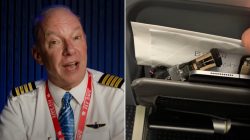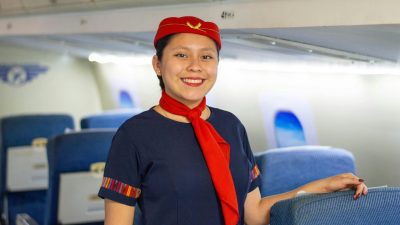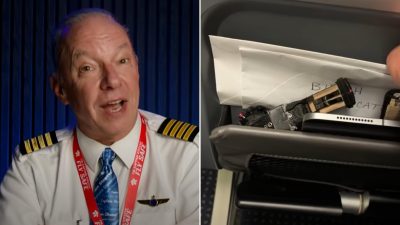Visitors planning trips to or transit through Switzerland during the summer might discover they are unable to travel as planned.
The country’s national airline, Swiss, has confirmed it will cancel around 1,400 flights from now through October as it confronts an ongoing shortage of pilots.
The reductions will impact several short-haul routes originating from Zurich and Geneva, covering various European destinations. Additionally, some long-haul services like those heading to Shanghai and Chicago will have decreased frequency.
Some routes, such as its summer service to Hurghada in Egypt, have been discontinued altogether.
What measures is Switzerland taking to tackle the shortage?
Swiss expresses deep regret over the issue and has implemented several immediate solutions to tackle its pilot deficit. These measures encompass a voluntary deferral plan for retirement, a holiday payout initiative, and incentives for working part-time.
pilots
to increase hours.
The airline is collaborating with its pilot union, Aeropers, to enhance scheduling flexibility and decrease unexpected absences caused by fatigue—efforts aimed at helping the national carrier address the shortage of around 70 additional full-time pilots needed.
Swiss has committed to informing passengers about alterations at the earliest opportunity. Those impacted will be transferred to other flights operated by Swiss.
Lufthansa Group
, other airlines within the Star Alliance network or — in the worst-case scenario — any alternative available option.
airline
.
Travelers have the option to rebook their journey or obtain a complete refund.
Could this be Europe’s summer of cancellations?
Switzerland Airlines isn’t alone in dealing with difficulties. Throughout Europe, airlines are reducing their flight schedules and developing backup strategies to manage an increasing lack of pilots and staff.
cockpit crew
.
KLM
Has openly admitted to challenges with crewing long-haul trips this summer, despite stating that it now has more pilots on its list than at any point in the past.
“Sick leaves and reduced working hours have risen in recent times. Each year, we essentially lose about 50 full-time positions because of this increase in part-time employment,” stated Eimerd Bult, who leads KLM’s flight operations, according to Dutch publication De Telegraaf, back in September.
Air France
KLM pilots are currently managing operations for some routes, such as those between Amsterdam and New York, from July through October of this year.
British Airways
and
easyJet
Meanwhile, they are actively hiring new personnel, engaging in fierce competition by offering attractive benefits to attract talent from competitors and even tempt back retired pilots.
For instance, British Airways has proposed covering the costs of pilot training – which can be as high as €100,000 – for up to 60 candidates each year.
Following suit, the airline has discontinued multiple short-haul services over the summer season, which includes halting operations for routes such as those connecting London Gatwick with Santorini and Mykonos, along with certain Heathrow-to-Greece-and-Croatia flights.
Why are there such limited numbers of pilots?
The pandemic
paused
New pilot training paired with rapid retirements form a double blow that the sector hasn’t fully recovered from yet. Specifically, in the U.S., the FAA anticipates approximately 4,300 pilots retiring annually up until 2042.
Europe is experiencing a comparable shortage. While certain airlines formerly maintained lengthy waitlists for pilot positions, they are now relaxing language and nationality criteria to broaden the applicant base.
The issue extends beyond retirement; it’s also about the pipeline.
Boeing’s projections indicate that the global aviation industry will require an additional 674,000 pilots within the coming twenty years. According to research from consultancy Oliver Wyman, by 2032, the worldwide pilot shortage might reach almost 80,000 aviators.
Europe alone could be 19,000 pilots short of demand.
How does this affect travelers during the summertime?
Travelers with short-distance flights, particularly those requiring layovers, should prepare for potential disruptions as European airlines reduce operations.
summer
schedules.
Specialists warn that stricter timetables might lead to reduced direct flight options, extended layover durations, and increased competition for seating. Passengers are recommended to make reservations well ahead of time, allocate additional time for connecting flights, and keep a close watch on airline updates.
Even though rebooking and refund policies are established, obtaining the optimal alternate option might ultimately depend on various factors.
how fast you move
.









